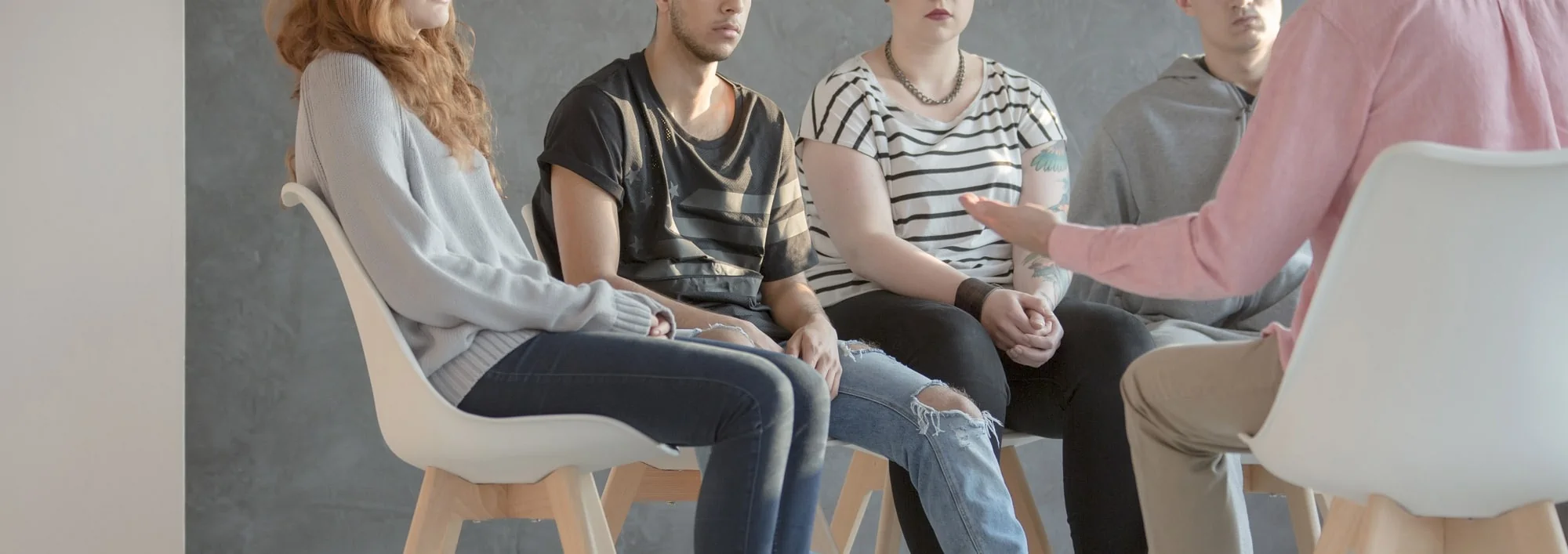Getting Treatment for Alcohol Use Disorder (AUD) after a DUI
A DUI is often a wake-up call for many struggling with alcohol use, and it can be a huge motivator to seek out and attend treatment. Sometimes treatment is court-ordered, and sometimes it is simply a need that has been realized through the consequences of risky alcohol use.
We will discuss the steps to pursue treatment after a DUI, how to pick the right treatment program for your needs, and the best ways to seek support and help with alcohol post-DUI. 
What To Do After Receiving a DUI
Receiving a DUI (a “driving under the influence” charge or DWI for "driving while intoxicated") is an incredibly stressful experience. A first-time DUI can have high legal, financial, and social costs and even result in losing jobs and other opportunities. Consequences for first-time DUIs will range by state and region, with some states enacting mandatory jail time
First Three Steps to Take After Receiving A DUI
Step 1: Get a Lawyer
Because the legal system is complicated, having legal representation is the best way to navigate a DUI. If you don’t have the money to hire an attorney, most courts have legal aid programs that provide low-cost or free representation for those who qualify. Even if your case doesn’t require a lawyer, it’s still a good idea to get in touch with an attorney.
You’ll need someone who can help guide you through the often-confusing process of figuring out what’s next for your life and driving privileges after getting arrested for a DUI. Getting legal advice from friends, family, the internet, or anyone but a legal representative is not advised.
Step 2: Understand Your Court Date and Legal Requirements
A DUI will often come with stipulations for getting your driver’s license back, like mandatory fines, ignition lock devices, classes, and other requirements. Knowing what types of court mandates you have will save a great deal of time and money in the long run.
Step 3: Find the Right Treatment Program
Picking the right treatment program for you will start with knowing your legal requirements if you have any. Once you identify a treatment program, check with your legal advisor or court representative to make sure that the program is adequate to meet the conditions of the court-appointed treatment requirement.
Even if you don’t have legal requirements, however, seeking treatment is often a good idea after a significant consequence from drinking, as consequences are often an indicator of a problem that has gotten out of control. Seeking help and recovery support is a commendable step in rebuilding after a DUI.
How to Pick the Right Treatment Program After A DUI
So, how do you know which treatment program is right for you? Ultimately your court requirements will give you an indication of the mandatory program for your charge, whether it’s outpatient, inpatient, educational classes, or some combination. Sometimes the court may just instruct you to get a substance use assessment and abide by the clinical recommendations of the professional who administers the evaluation.
Identify Your Recovery Necessities
The best treatment program is one that will meet both your recovery needs and your schedule. Many people have kids, work, school, and other responsibilities that make a long-term inpatient stay difficult or impossible, while others simply cannot manage early sobriety without the medical or psychological support of inpatient treatment. Discussing these complicated factors with your family and care team will help you decide the best plan.
For those seeking services in the California area, Confidential Recovery offers:
- Intensive outpatient treatment in San Diego that offers both day and evening groups to work around busy schedules. Outpatient programs are individualized with treatment plans to meet your needs and schedule. Medically assisted treatment is also available if needed.
- Telehealth intensive outpatient programs for those who don’t have the time or resources to access in-person services. Online treatment services can be exceptionally useful after a DUI, as getting around without a license is a hardship for many trying to get their lives back together.
- Intervention services for those who are helping a loved one. For some who receive a DUI, the legal charge may not be enough of a wake-up call to make some changes regarding out-of-control alcohol use. Many will still fail to see the problem or opt to blame circumstances instead of taking responsibility. Assisting a family or friend with a substance abuse intervention is a challenging, delicate, and painful task that is best undertaken with the support of a trained substance abuse professional.
- Treatment planning to determine the best course of action. Most people don’t intuitively know what level of treatment they need when getting help, and that’s okay. Confidential Recovery can help you meet with a team to get assessed and start identifying the appropriate level of support. This can include medical treatment needs, family sessions, outside meetings, supportive group therapies, and individual counseling sessions.
Getting Help After a DUI

If you’re charged with a DUI, let your attorney know you’re willing to go to treatment for alcohol use disorder. If you and the judge can come up with a treatment plan, you might avoid or reduce incarceration time. (On the other hand, if you show no remorse or refuse to admit that there’s a problem, you’ll often face a harsher sentence. )
We’re Ready When You Are
Alcohol addiction doesn’t hurt just the person who is drinking. It’s a family disease, too. We’re here for you to get the help you need! It takes a lot of strength to admit you don’t have all the answers, but the good news is you don’t have to face this problem alone.
We here to help executives, military veterans, and anyone else in the San Diego area who needs comfortable, discreet, and confidential support getting sober. Our clients receive confidential, long-term addiction treatment that supports sustainable recovery. Call us at 619-452-1200.
Conclusion
A DUI is a big obstacle, but it can also be a catalyst for significant and necessary life changes. In the same way that a lawyer can (and should) support your legal situation, a certified substance abuse treatment program can help you navigate the world of recovery and sobriety. Seeking out addiction support during this critical time is one of the best things a person can do after getting a DUI. Confidential Recovery is here to help you navigate the often-confusing world of treatment and recovery and provide the support needed to get your life back on track.
Learn more about how Confidential Recovery can support you or your loved one in living a life free from drugs and alcohol, especially after a difficult DUI.



